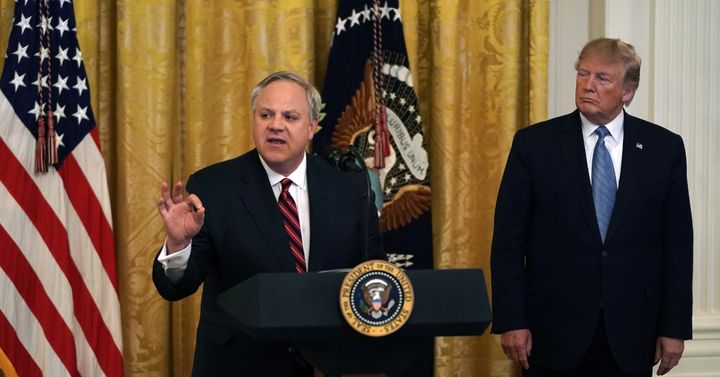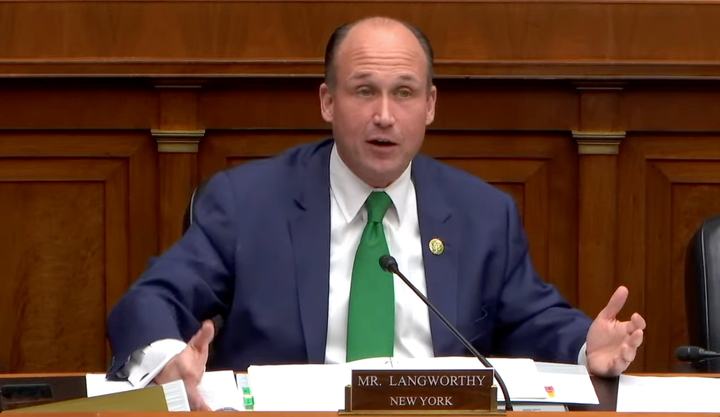When you’re in the business of selling something whose value suddenly collapses, as U.S. oil producers were earlier this year in the global slowdown around the coronavirus pandemic, it’s helpful to have someone in power to cut your tax rate to near zero and press pause on your leases.
The Trump administration gave generous financial relief to hundreds of oil and gas leases to drill on public lands over the past three months in the form of reductions in rates of royalty payments, as well as beneficial lease suspensions. Many of the companies that received the relief made immense donations to Republican politicians and super PACs in recent years.
The oil companies that received the relief, as well as their executives and parent companies, have given more than $10 million to Congressional Leadership Fund (CLF) and Senate Leadership Fund (SLF) since 2015, super PACs affiliated with House and Senate Republican leadership, according to a new report out today from the nonpartisan Campaign Legal Center (CLC).
The Interior Department’s Bureau of Land Management (BLM) had disclosed royalty rate reductions for 227 oil leases and lease suspensions for 360 oil leases, according to the Center for Western Priorities’ (CWP’s) analysis of BLM data up to June 23, 2020 that was used in the CLC report. Oil companies benefited from having their rates of royalty payments slashed from 12.5% to just 0.5% and from lease suspensions that allowed them to halt production while oil prices plunged to record lows. Oil and gas exploration company Samson Resources, for which U.S. Secretary of the Interior David Bernhardt was formerly a registered lobbyist, was granted more than 50 lease suspensions.
Several of the Republican members of Congress who have benefited from the oil companies’ political spending signed a March 30 letter to Secretary Bernhardt that urged him to reduce the companies’ royalty payments. “[The oil and gas companies] are seeking to continue production rather than a bailout and should be given due consideration as such,” the senators wrote. “There is no playbook for the situation we find ourselves in and we must utilize every existing authority.”
Among the letter signers were Senators John Cornyn (R-Tex.) and Jim Inhofe (R-Okla.), who have received large contributions from oil company The Anschutz Corporation, and Sen. John Barasso (R-Wyo.), who has taken maximum contributions from the chairperson of the Cockrell Oil & Gas company. BLM granted royalty rate reductions to subsidiary Anschutz Exploration from 12.5% to 0.5% on two Wyoming leases it holds or co-holds and lease suspensions on eight Wyoming leases it co-holds. Cockrell Oil & Gas received a royalty rate reduction from 12.5% to 5% on a Utah lease.
Stephen Chazen, former CEO and current chairperson of Houston-headquartered Occidental Petroleum Corporation, has given $1.15 million to the CLF and SLF, chased by $1.12 million to a pair of House Republican joint fundraising committees, $375,000 to President Trump’s joint fundraising committee, and $316,600 to Senator Cornyn’s joint fundraising committees. Occidental subsidiary Anadarko E&P Onshore received royalty rate reductions from 12.5% to 0.5% on seven Wyoming leases it co-holds, and three other Occidental subsidiaries received rate reductions or favorable lease suspensions.
Two oil giants topping seven figures given to the Republican super PACs were ConocoPhillips and its subsidiary ANS Marketing, which gave $2.5 million to CLF and SLF in 2018 and 2019, and Occidental Petroleum and Anadarko, acquired by Occidental in 2019, which together gave $1.56 million to the groups since 2015.
“This appears to be yet another instance of pandemic relief flowing to wealthy special interests that have spent years rigging the political system in their favor,” writes Senior CLC Researcher Maggie Christ, the report’s author.
CLF and SLF are affiliated with House Minority Leader Rep. Kevin McCarthy (R-Calif.) and Senate Majority Leader Mitch McConnell (R-Ky.). As super PACs that are allowed to take donations in unlimited amounts, these groups are supposed to be independent from parties or campaigns. However, the groups use loopholes in campaign finance laws to work with GOP leadership and target their spending in favor of the party’s preferred candidates.
In March, Sludge covered documents revealing that Bernhardt, previously a lobbyist and attorney whose clients included dozens of oil, gas, and natural resources companies, met with lobbying groups that represent his former client, oilfield services giant Halliburton, in violation of his ethics agreement. During Bernhardt’s March 2019 confirmation hearing, Democratic Sen. Ron Wyden of Oregon raised leaked audio of Big Oil lobbyists celebrating their insider’s ascension to the top post at the Interior Department, after his predecessor, Ryan Zinke, was forced to resign following a conflict-of-interest scandal also involving Halliburton.
The BLM’s acting director, William Perry Pendley, previously ran a legal organization called the Mountain States Legal Foundation that received significant funding from the oil, gas, and mining industries while suing the Interior Department on behalf of oil and gas prospectors and dismissing climate change advocates as “kooks.” Multiple lawsuits now allege that Pendley’s repeat appointments without Senate confirmation, most recently in May of this year, are illegal.
Estimates of the total cost of federal subsidies to the fossil fuel industry use different baselines for calculations: a 2019 Congressional Research Service report on energy subsidies found direct fiscal support of $4.6 billion annually, while a 2018 coalition of groups including the Natural Resources Defense Council and Oil Change International put the total U.S. cost higher, at $27.4 billion. A 2019 working paper by the International Monetary Fund found that, including the costs of all negative externalities to health and climate degradation, U.S. energy subsidies total $649 billion annually.
The UN Intergovernmental Panel on Climate Change (IPCC) warned of the risk of extreme heat, drought, floods and poverty in a major October 218 report unless the world implements measures to keep global warming to a maximum of 1.5 degrees Celsius. Towards this goal, a September 2019 report titled the Exponential Roadmap by an international group of experts outlined a package of 36 developments that civil society can adopt to meet decarbonization milestones by 2030, which include immediate removal of subsidies from fossil-based power plants and infrastructure.



